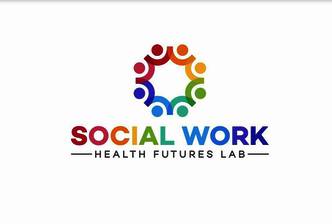Future Now
The IFTF Blog
The Social Work Health Futures Lab: Exploring the Future of Well-Being and Justice
Social workers provide most mental health services in the U.S. and operate throughout the United States in what the U.S. Department of Labor considers among the fastest growing professions in the next ten years. But what does it look like to invite an entire profession to consider whether futures thinking and foresight practice should be part of how it operates to succeed now and in the times ahead? It is just this question that the Robert Wood Johnson Foundation (RWJF) has funded to ask in a new initiative, the Social Work Health Futures Lab, to consider over the next 18 months.
Futures thinking and foresight practice guide thinking into new spaces and new ways of considering all kinds of issues, challenges, and solutions. The future of government, well-being, food, technology, climate are all riveting examples of where foresight is thriving. Communities and organizations are learning to use futures thinking to imagine, strategize, and co-create better futures. It can provide new scaffolding for professions—which are facing challenges to evolve fast enough to meet the times we practice in. Medicine, law, and journalism are experiencing adjustment stress to deeply and rapidly changing times.
Health consists of many factors – but is significantly impacted by what is known as “social determinants of health.” The World Health Organization describes these as “conditions where people live, learn, work and play that affect a wide range of health and quality of life risks and outcomes.” Social work is a profession that specializes in these conditions – at the “micro” level in which individuals, couples and families seek assistance for personal issues impacting their success and functioning to “macro” issues that involve social policy and/or social justice. Social workers typically specialize in areas (e.g., addictions, housing, criminal or juvenile justice, accessing physical health care, mental health, child and family success, economic justice, cultivation of community well-being networks, aging) and do so in ways that promote justice, anti-racism and ethically grounded standards.
Social work knows something about and works diligently on current “social determinants of health” (racism, poverty, injustice, well-being), but what about variations of known determinants or ones we don’t yet see or understand? How will changes in technology, climate, migration, geo-political issues, economic evolution, and public health intersect with known and unknown variables? Is the social work profession “ready” for the future – or do we operate as if continuing to simply continue to practice as we always have adequate to meet the challenges ahead?
Through a grant to Portland State University School of Social Work, the Robert Wood Johnson Foundation has funded the Social Work Health Futures Lab to invite social workers across the country to explore, consider and apply a foresight lens to social work.

This entire project to found the Social Work Health Futures Lab was developed as a labor of love after I was fortunate enough to enter the IFTF “ecosystem” and find so much inspiration, support, and encouragement to take what was a tiny idea of one social work academic/practitioner - and grow it into a national effort to challenge and stretch an entire profession. Taking the IFTF Foresight Essentials course, attending several IFTF Ten-Year Forecast summits, and deepening my lifelong journey as a person interested in the future has been unexpectedly catalytic and exciting for me, and I believe, for my profession ahead.
As the founder of the lab and a former dean of a school of social work who knows some things about how resistance can hold things in place and inhibit change, I formed a national advisory group of social work leaders to help with the conceptual and practical “lift” of bringing this idea to life, worked with RWJF to submit a proposal and then navigate through the complexities of bringing a project like this online JUST as COVID-19 hit (no airplanes!!) and shift to an online community building and learning environment. At the time of this writing, we’ve just selected 26 social workers who will help explore how and if futures thinking can ready our profession in some new and important ways. Each of these scholars and practitioners brings new energy, new vision, and new possibilities for our profession in their commitment and energy to this lab. We will be considering deeply - how might these frameworks and tools change the social work profession...and...how might the social work profession change the way foresight is understood and practiced.
We very much feel like we’re on a shared learning adventure. The new Fellows are inspired, excited, and brave - I can’t wait to see what they do with this truly groundbreaking opportunity. Please visit and explore what we’re up to at: www.socialworkhealthfutureslab.org.
My challenge to others “on their foresight journey” is to think bigger, find allies, map your change ecosystem and build some collective intelligence and momentum. I have truly learned that foresight works better in community...I didn’t see one in my own profession, so I’ve been blessed to have forged a way to build one. Where do you see yourself using these tools to make the most meaningful impact you can imagine?
Special thanks to Kathi Vian, Dr. Lyn Jeffery, and Dr. Jake Dunagan at IFTF as well our National Advisory Committee members: Dean Nancy Smyth (University of Buffalo), Dean Martell Teasley (University of Utah), Dean Jose Coll (Portland State University), Associate Dean for Research and Professor Desmond Patton (Columbia University), Professor Heidi Allen (Columbia University), Dean Goutham Menon (Loyola University Chicago), Dean Debra McPhee (Fordham University), Dean Eddie Uehara (University of Washington), President of the National Association of Social Workers Dr. Mit Joyner, and President of the Council on Social Work Education Dr. Darla Coffey.



